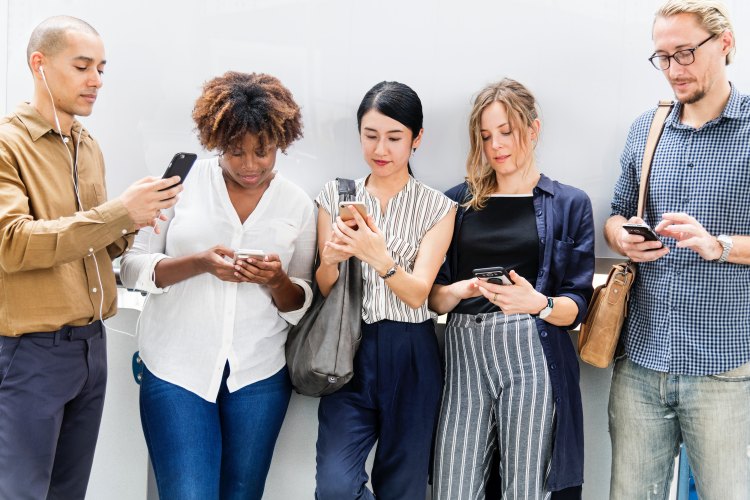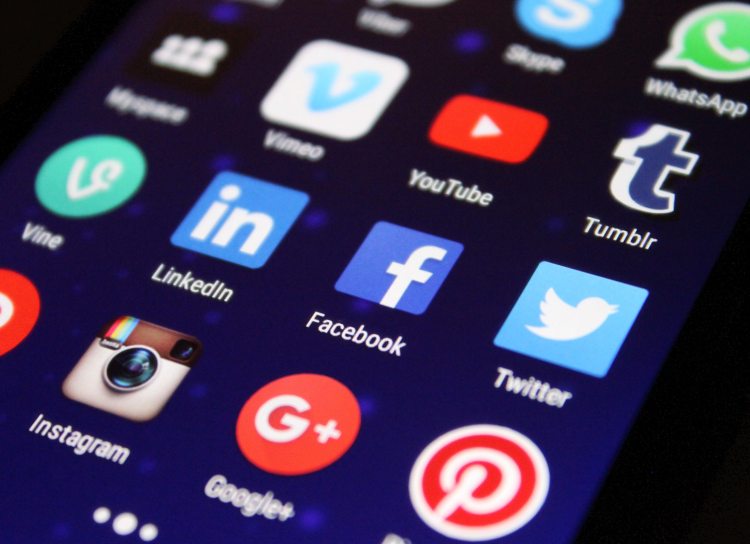
A few months ago I published a post called “waking up from the digital coma”, detailing how I’m happier, more engaged and have more focus since limiting my interaction with my smartphone. Since then I have had several people asking how I was able to detach from my mobile device.
I thought I would consolidate all my tips in one place. I hope you find something helpful.
Facebook (and any other social media)

Social media is probably the biggest vampire when it comes to time and attention. I found myself “quickly logging on” between tasks, only to realise suddenly that 20 minutes had passed and I’ve done nothing but scroll through my news feed.
How I dealt with it
Something that is not there cannot tempt you, so I removed the app off my phone. I found I was less likely to spend several 20-minute sessions a day on the PC site compared to the phone app. Making it more difficult for myself to spend time on the platforms eventually led me to close them down permanently. I was off of all social media for 2 years. I did not miss it for a moment.
How I use it now
Social Media does have its uses and I have reactivated Facebook to promote my blog. I have not installed the app on my phone. Instead I’ve bookmarked my blog’s Facebook page which allows me to navigate directly there, bypassing the news feed. I also have an Instagram account to which I post only occasionally. My blog is auto-shared to a Twitter feed which I forgot about until I was writing this post.
Other Apps
I would not necessarily label myself a minimalist, but I suffer from a lifelong aversion to clutter of any kind. Countless apps not only clutter your home screen, but take up valuable space in your phone storage.
How I dealt with it
When I got my phone, I uninstalled as many of the pre-installed apps as I could. I’ve turned off auto-updates and ignore the updates for apps that I do not use but defy efforts to uninstall.
I have re-framed how I view my phone – it is a tool, not a source of entertainment. I therefore do no have any games or social media installed (except for Instagram which, annoyingly, does not have a PC version available). I have un-linked my email and removed myself from almost all IM group chats.
Most importantly, I have deactivated all but one sound, light and pop-up alerts / PUSH notifications (the one that remains? The bank – because fraud is real…).
How I use it now
App alerts are a constant source of distraction. If I cannot hear or see a notification, I am less inclined to want to engage with it.
My home screen contains only a clock. I do make use of several apps that add real value to my life. Along with the usuals (sms, phone, contacts), these include a meditation app, a callisthenics workout app, my banking app, an IM service and a music streaming app. These are stored in folders away from my home screen (see screenshots above). The extra second it takes to navigate to those folders gives me a chance to question whether I actually need to access them in the first place.
Dude – where’s my phone?

To paraphrase several internet sources, multitasking is “the art of messing up several things at once”. To me, a smartphone is possibly the biggest source of so-called multitasking because of its omnipresence. Googling “digital distraction” will bring up a large number of articles and studies detailing how simply having your phone visible is a source of constant distraction, even if it’s turned off. This can lead to potentially life threatening situations (phones + driving = inevitable terrible things).
How I dealt with it
I’ve taken to hiding my phone. This 18-month practice has led to me often forgetting my phone in it’s various hiding places. The world has not yet imploded because of this.
At home, it’s placed on a bookshelf far out of reach from all of the places I usually sit. In order to check it, I need to get up from wherever I happen to be. It’s a real pain so in most instances I tend to not bother with it unless it rings.
I work in an open plan office and therefore stream music via my phone app for most of the day to minimise external distractions. My phone is therefore usually lying somewhere on my desk. I have taken to placing it out of my line of sight behind my laptop.
While driving, if the phone is not in the boot with the rest of my stuff, it is on silent in the door pocket with the screen facing away from me. It’s not always in the boot for practical reasons – I would continually forget it in the car if I didn’t see it as I was getting out.
When I am with other people, my phone is out of sight in a handbag or pocket. When I am by myself, the phone is in those same places.
How I use it now
The same way I initially dealt with it – out of sight, out of mind.
The benefits of it all

Time I would spend aimlessly scrolling has been reallocated to more worthwhile pursuits. I am more focused, can concentrate for longer periods of time and just generally more productive, both at work and in my personal life.
I no longer suffer from “FOMO” and I’m less stressed because I’m not trying to get to every event being attended by my social media contacts. When I am at functions and events, I am more present and “in the moment” because I’m not trying to capture a video or picture so I can “remember this later”. That is what my memory is for. Speaking of which, mine is better than it was pre-smartphone detox.
If I am interacting with other people, I can give them my full, undivided attention, looking directly into their eyeballs as we chat – I find this adds to the enjoyment of spending time with them. When I’m by myself, it frees me up to find pleasure in whatever I’m doing – even if it’s just sitting around doing nothing.
Final words on the subject
It is worth noting that I didn’t go cold turkey. As with most things, small changes compounded over time will lead to the highest chance of developing alternative habits. As long as I have a smartphone, it will remain a daily challenge to not allow it to take over my life.
Perhaps the benefits listed don’t float your boat or you don’t feel your tech negatively influences your life in any way. That’s ok – I’m not here to judge. I’m pretty sure that the processes I followed won’t work for everyone either. But if you’re looking paring back at your use, hopefully this post has provided a tip or two to help you along your way.
Good luck!




Currently reading your blog on my phone …so there’s that?!
LikeLiked by 1 person
Touché. Lol
LikeLiked by 1 person